Agashe: Sudan’s Homage to its African Roots
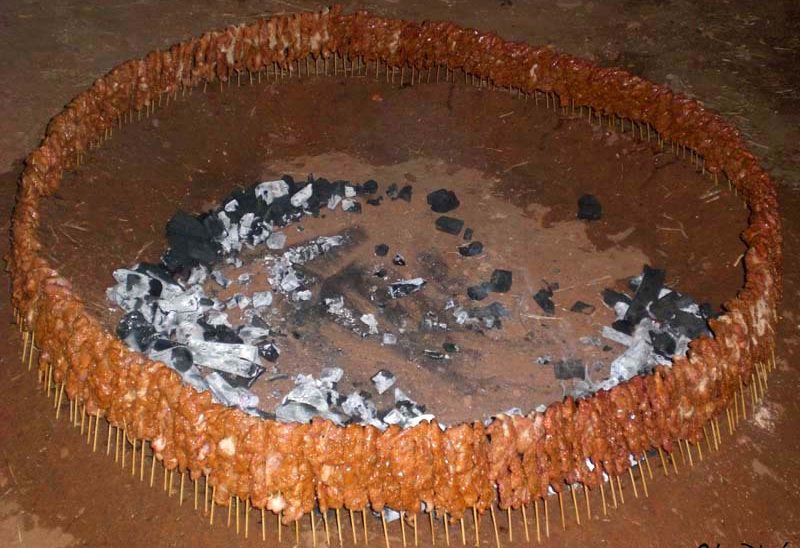
Image courtesy of Ola Diab
While strolling down Khartoum’s Souq Al Arabi at night, you cannot miss the smoke trailing in the gaps between the crowds. And as your eyes follow the smoke, your nose is drawn in by the distinctive barbeque aroma drifting from the small grills of the Agashe stands, scattered around street corners, and on the sidewalks between the bus lanes.
While many people know Agashe as a specialty dish from Western Sudan, its roots actually stem from even further in West Africa – northern Nigeria. Suya, the original dish, was brought by the Hausa (Haoussa) people who immigrated and settled in Sudan, while passing through on their way to perform pilgrimage in Mecca. In Ghana, this popular dish is also known as chichinga or tsitsinga.
Agashe is traditionally made with skewered beef, lamb and chicken, and with many seafood restaurants serving it around the city of Khartoum, even fish is getting highly popular.
The thinly sliced meat is marinated in various spices which include ground peanuts, salt, vegetable oil, and other flavourings. It can be served as a snack, meal or sandwich. Agashe is best enjoyed by adding an extra dash of the spice mix, a generous squeeze of lemon juice and served with freshly-cut onions. It is spicy and addictive, and the only way to calm the burning sensation is by eating some more.
The spice mix recipe is one of the best-kept secrets of Sudanese cuisine. If you are an avid Agashe fan like me, you may have wondered about the method and failed miserably to get past typical vague answers of ‘special Nigerian spices’.
Image courtesy of Amr El-Sheikh
During my last visit to Sudan in March 2018, I had the privilege to sit down with Hajah Hawwa, a Fulani woman who sold Agashe mix to my grandmother in Wad Madani, along with other specialty snacks like fool madammas (roasted peanuts) and tasali (toasted melon seeds). After hours of interrogation, she finally broke down the process of making the seasoning mix.
The spice mix starts with the kuli-kuli, a peanut cake made from fried peanut butter. The process begins by removing the moisture from the peanuts, which is then ground and mixed with ginger powder, dried onion, garlic powder, cinnamon, white pepper, red chili pepper, African nutmeg and uda pods (locally known in Sudan as Kumba).
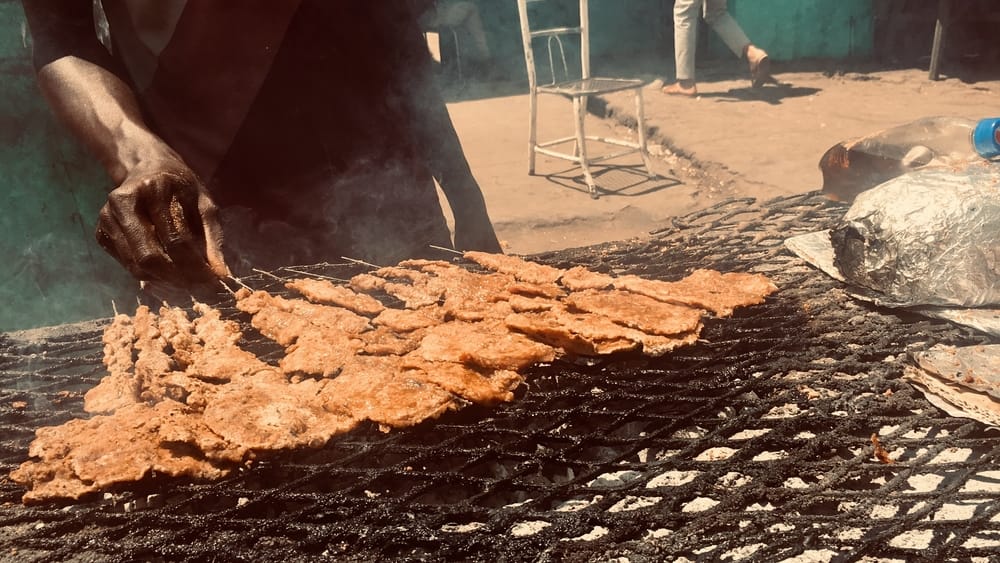
Image courtesy of Amr El-Sheikh
Hajah Hawwa then took us to Hussain, a local Agashe vendor with knife skills like that of a sushi master. We watched him transform a chunk of meat into paper-thin and almost transparent slices, which he then skewered and coated with the spice mix and laid on a tray to marinate until they were ready to be grilled.
When grilling Agashe, low to medium heat is preferred due to the thinness of the meat slices. It is then drizzled with a bit of sesame or peanut oil to accentuate the flavours of the spices and keep the meat tender and juicy.
Image courtesy of Amr El-Sheikh
Sudan is a vast country that sits at the intersection of the Arab world and Africa. A country with a cuisine that is as diverse as the people of its land. Agashe is an excellent example of African influence on Sudanese cuisine. The dish is undoubtedly the king of street food in Sudan. Spicy, intensively flavoured and highly addictive. If it was socially acceptable, I would have Agashe for breakfast, lunch and dinner.
If you are in Sudan, here are the top places to find Agashe:
- Yousif Agashe, Omdurman Al Arbaean St
- Tijani Yaqoub, Abdalla El Tayeb St
- Awlad Al Am, Omak St
- Wad Al Faki Burri, Al Siteen St
 Amr El-Sheikh is a food enthusiast and founder of DAKWA, a Sudanese food startup in Muscat, Oman. An atypical Sudanese with Turkish, Syrian, Moroccan and Egyptian blood in the mix, he identifies as a cocktail person. He is passionate about food and culture, and is a self-acclaimed comedian, voted the second funniest person among his friends. When he is not working as an architect, he’s daydreaming by the beach, practicing paratha making or napping. You can find him on Instagram at @dakwa.official.
Amr El-Sheikh is a food enthusiast and founder of DAKWA, a Sudanese food startup in Muscat, Oman. An atypical Sudanese with Turkish, Syrian, Moroccan and Egyptian blood in the mix, he identifies as a cocktail person. He is passionate about food and culture, and is a self-acclaimed comedian, voted the second funniest person among his friends. When he is not working as an architect, he’s daydreaming by the beach, practicing paratha making or napping. You can find him on Instagram at @dakwa.official. 


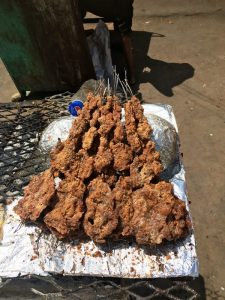
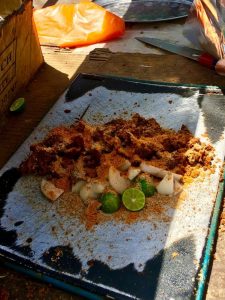



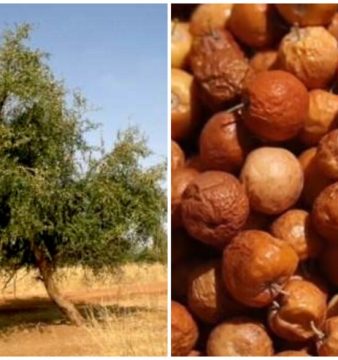
Isn’t Sudan an African country? What exactly do you mean by “African roots”? Sudan IS AFRICAN… for crying out loud, so is Algeria, Egypt, Morocco. Africa isn’t made up of only dark-gold skin.